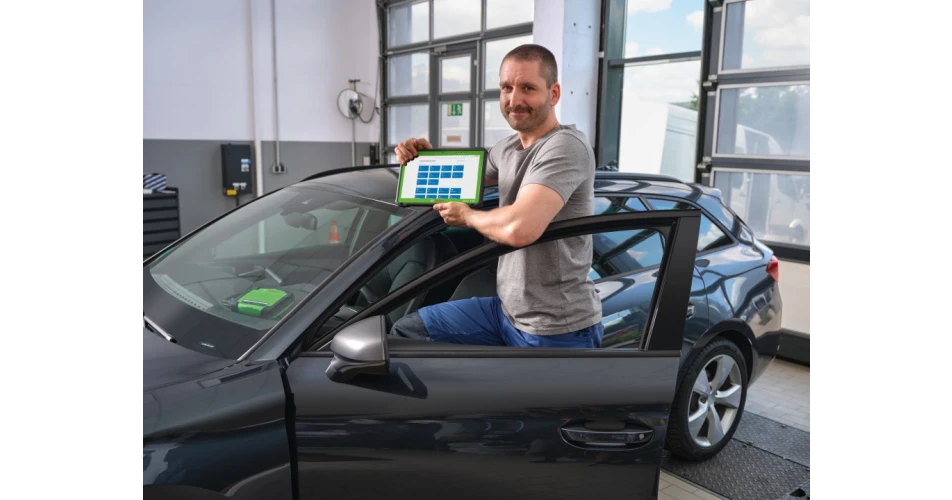The Bosch stand at Automechanika is always a must see and this year, the company once again had on show a host of new equipment, services and components, designed to make workshops more efficient and open up new business opportunities for the future.
As one of the largest original equipment manufacturers for almost all automakers, Bosch is familiar with technical trends and developments of the future, which means it can actively support workshops in successfully mastering the industry’s transformation. This year there was an emphasis on innovative software solutions, state-of-the-art diagnostic technology and products for the growing EV sector.
At the show, Bosch was demonstrating how it has given its proven ESI[tronic] Evolution diagnostic software a major upgrade, expanding it to include a range of new functions for professional workshop service. This enables independent and multibrand workshops, to diagnose, service, and repair almost any vehicle. For the first time, ESI[tronic] Evolution combines the areas of diagnostics, Bosch instructions for service and repair, as well as automakers’ documentation on a single software platform.
Looking to the future, Bosch assumes that ICE vehicles will continue to play a major role in workshops for a long time to come, alongside the growing number of electric vehicles. As such, Bosch will continue to develop workshop equipment for working on combustion engines, while at the same time, providing workshops with comprehensive support for their entry into electromobility, including the latest ESI[tronic] Evolution diagnostic software, special testing and diagnostic technology, and a broad portfolio of spare parts.
ADAS will be another vital future work source and in Frankfurt, Bosch was showing how with the ADAS One Solution calibration software and a workshop-compatible calibration device, Bosch has developed a system for the efficient recalibration across all vehicle makes, which is capable of cutting set-up time in half.
Bosch was also showing its RDS remote diagnostics service, where seasoned Bosch experts can provide fast and effective support, by means of direct remote access to the vehicle in the workshop. It was also demonstrating a system, which allows Bosch diagnostic equipment to analyse a vehicle and produce a Bosch used-car certificate which documents error codes, identifies past accidents and overdue maintenance, and uncovers any manipulation of the odometer. In the case of electric vehicles, it also documents the current battery capacity.
The stand also included information on the Bosch eXchange program for remanufactured parts, especially starters and alternators, as well as other sustainable aftermarket solutions, such as an increasing use of recycled packaging and Bosch’s new DOT 4 E brake fluid, which contains no harmful borates, meaning it no longer needs hazardous labelling and special handling. With its low viscosity, the new brake fluid exceeds the international DOT 4 standard, while its low conductivity means it can also be used in electric vehicles.
 At Automechanika, Bosch was demonstrating how it has given its proven ESI[tronic] Evolution diagnostic software a major upgrade, expanding it to include a range of new functions for professional workshop service
At Automechanika, Bosch was demonstrating how it has given its proven ESI[tronic] Evolution diagnostic software a major upgrade, expanding it to include a range of new functions for professional workshop service